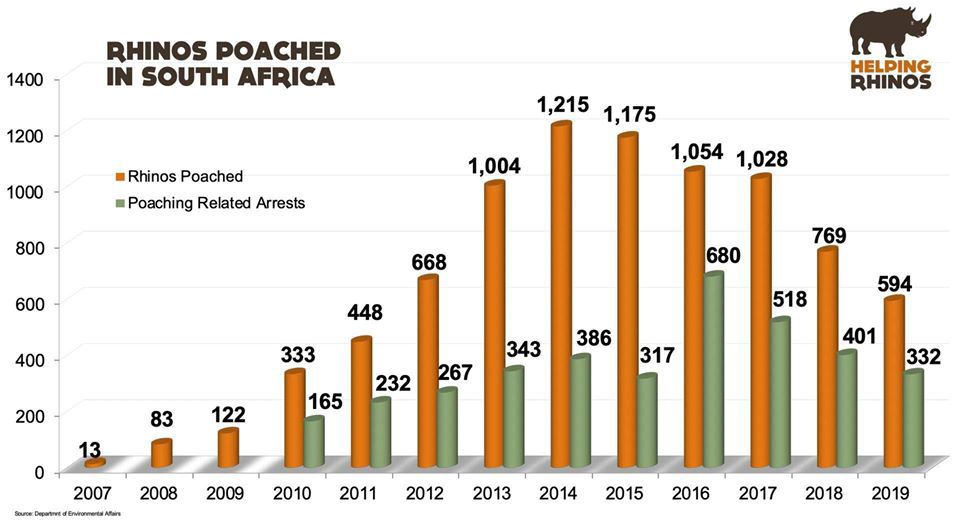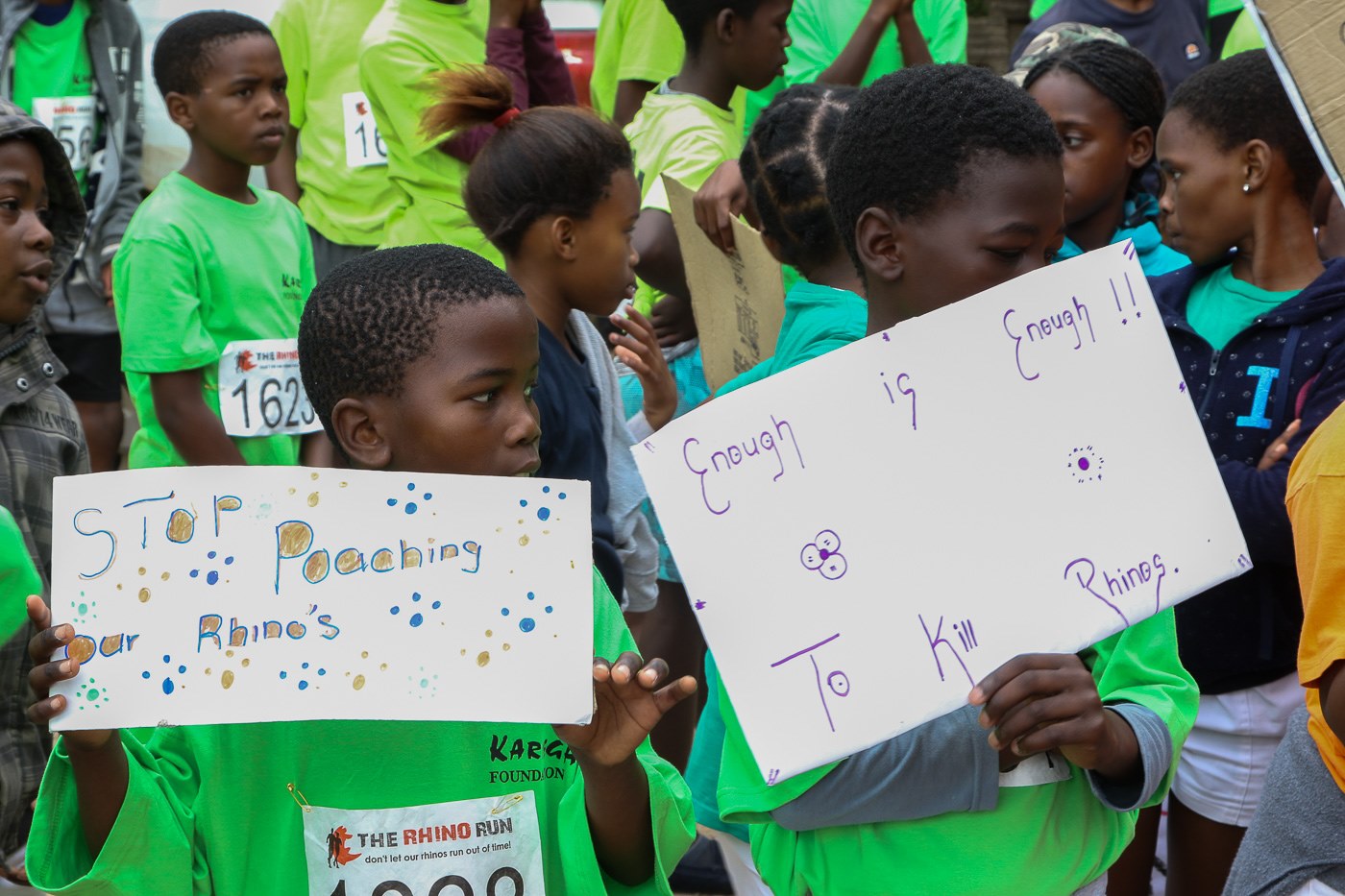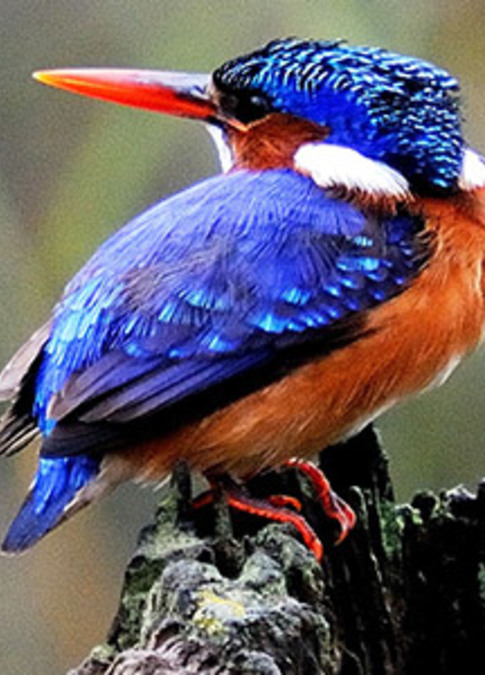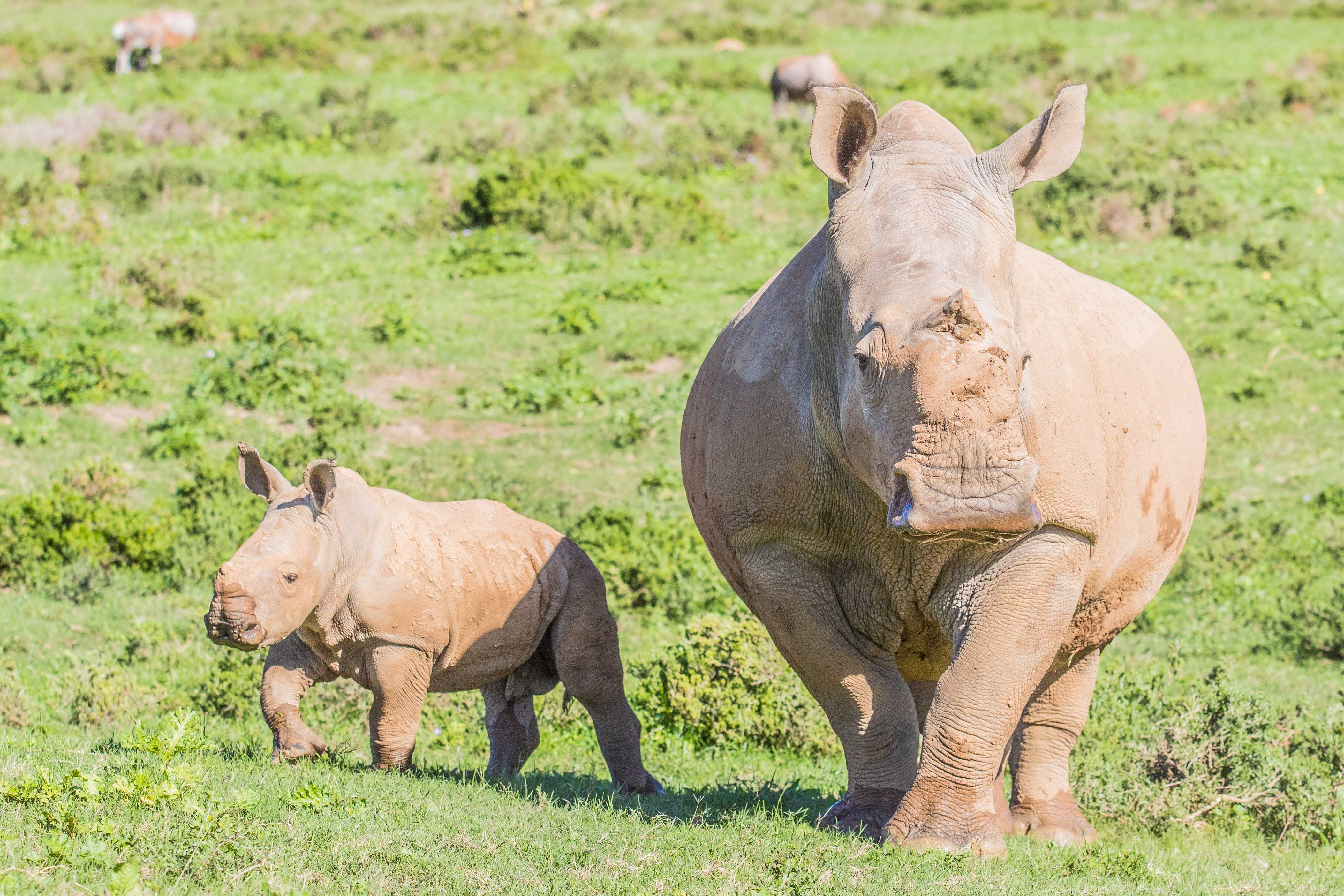Eight Years Since Rhino Poaching
On the fateful night of 2 March 2012 three rhinos were forced to say goodbye to their lives as they had know them. These colossal creatures were used to simply grazing and roaming freely on the African plains at Kariega Game Reserve. On 2 March 2012 they were tracked by poachers and then darted with tranquillisers before their horns were hacked off with a machete (short sword). They were left alive (as the tranquillisers wore off) to lie in agony in pools of blood. Their lives (and ours) changed in an instant.
One rhino bull lost the battle and was found dead, another bull held on for a few weeks but then succumbed to his horrific injuries. The only survivor was a feisty and fearless white rhino cow. The survivors bravery was unbelievable and inspired our guides to nickname them Themba and Thandi, two isiXhosa names meaning hope and courage (or to be loved).
Sadly Themba (Hope) suffered a leg injury on the night he was poached and as a result of infection passed away on the morning of the 26 of March 2012. Thandi continues to amaze us with her incredible fighting strength and miraculous recovery. She became the first rhino to ever survive a poaching attack. Her story spread around the world and has inspired many people to get involved in rhino conservation. She now has three calves and continues to live in the wild at Kariega Game Reserve in South Africa's Eastern Cape.
On 2 March 2020 we reflect that it is eight years since this rhino poaching. We provide an update on South African rhino poaching statistics, our collaborations and activities that assist us to protect and conserve rhino and links to past stories, particularly about poaching survivor Thandi and her three calves, Thembi (Hope), Colin (named after the late founder of Kariega Game Reserve) and Mthetho (Justice).
We hope you enjoy the video of Thandi and her youngest calf Mthetho who was born on 3 April 2019. The calf's name was chosen to commemorate the conviction and sentencing of three rhino poachers which co-incidentally took place on the day of his birth in nearby Grahamstown.
South African Government Releases Rhino Poaching Statistics

The South African Department of Environment, Forestry and Fisheries (DEFF) released the 2019 rhino poaching statistics in February 2020. The statistics report a noticeable drop in poaching deaths to 594 in 2019, compared to 769 in 2018. This is the lowest number of reported deaths since 2011.
The decrease in rhino poaching deaths is very positive and welcomed but the number is still too high and does not mean rhinos are now thriving. On average one rhino is killed by poachers every 15 hours in South Africa. The two types of rhino found in South Africa are the southern white rhino subspecies (square-lipped rhinoceros) and the black rhino (hook-lipped rhinoceros) remain near threatened (to extinction) and critically endangered. According to conservation organisation Save the Rhino, there are estimated to be only 18,000 white rhino and 5,500 black rhino remaining in protected areas and private game reserves. South Africa is home to over 80% of the world's rhinos.
These magnificent creatures are being killed due to absurd beliefs about the medicinal properties of their horns. The belief is that rhino horn can be used to cure cancer, arthritis and a host of other ailments. None of these beliefs are true. There are no proven medicinal benefits of rhino horn. Rhino horn is made from keratin, the same substance in our fingernails and hair. The demand for rhino horn is causing these animals to be killed by poachers.
The decrease in rhino poaching numbers is due to huge efforts in South Africa and from around the world. These include better and more Anti-Poaching Units (APU), advances in technology used in conservation such as drones, infra-red, night vision and tracking equipment, along with endless fundraising work for resources, awareness initiatives and ongoing education about rhino poaching and the need for conservation. Most of all, the positive results are due to the collaboration between people, organisations, conservation groups, private reserves, national parks and government. Together we can push in the right direction for wildlife conservation.
Eight Years Since Rhino Poaching: Partners in Conservation
Perhaps you have heard the saying, “teamwork makes the dream work.” We are elated to be see that hard work and standing together for the same cause is showing results for rhino protection and conservation.
At Kariega Game Reserve we are extremely fortunate (and humbled) to have received significant support since the rhino poaching incident in March 2012. The ongoing support for our Save the Rhino fund from organisations, businesses and individuals is awe-inspiring. Working to keep rhinos and other wildlife safe 24/7, staying motivated on a daily basis through the ups and downs, improving technology for tracking and monitoring, pushing the team to new heights through training and working with our local communities are some of our proudest achievements. These are all possible through collaboration and generosity.
The rhino poaching incident eight years ago meant that the story of Thandi, Themba and Bull #84 spread around the world and inspired people to take action, make the difference and get involved. Read more about our amazing partners in our blog "Standing Together to Fight Rhino Poaching." We are grateful for the immense and hugely valuable support from all of our partners in conservation.

Celebrating Three Rhino Calves: Eight Years Since Poaching
The incredible rhino poaching survivor Thandi has gone on to have three healthy calves since she was poached eight years ago. Thembi, her first and only female calf was born on 13 January 2015. Her two male calves are Colin (born on 24 January 2017) and Mthetho (born on 3 April 2019). Thankfully this family roams freely and can often be seen while on safari at Kariega Game Reserve.
Please follow the below links to read more about the rhino poaching incident, Thandi's miraculous story and our rhino conservation efforts:
- Kariega Foundation Save the Rhino Fund
- Special Rhinos Celebrate Birthdays
- World Rhino Day 2019
- Rhino Run 2019
- Poachers Killed: Eastern Cape Rhino Poaching Crisis
- NEW: Adopt Rhino Thandi and Family
- Safari Guest Funds Rhino Conservation
- Kariega Celebrates the Birth of Thandi's Second Calf
- Four Years Since Triple Rhino Poaching at Kariega
- Dancing for Rhinos: Protect, Conserve and Preserve
Share Your Stories With Us
Were you lucky enough to see Thandi and her family while on safari at Kariega Game Reserve? Did you perhaps see them on television, social media or YouTube? Please add your stories by commenting below or connect with us on YouTube, Facebook, Instagram and Twitter. We also encourage you to subscribe to our blog so that you can receive updates via email.
If you would like to find out more about a South African malaria-free safari at Kariega Game Reserve please contact us directly via our online form or email us on reservations@kariega.co.za. We offer accommodation in five safari lodges to suit a range of budgets. The reserve is located at the end of the popular Garden Route and a short flight 80 minute flight from Cape Town. We look forward to welcoming you and perhaps you will see poaching survivor Thandi and her family in the wild.
Video thanks to Fergus Clarke, Kariega APU leader Daniel Haesslich and poaching statistics graph thanks to our partner Helping Rhinos.











